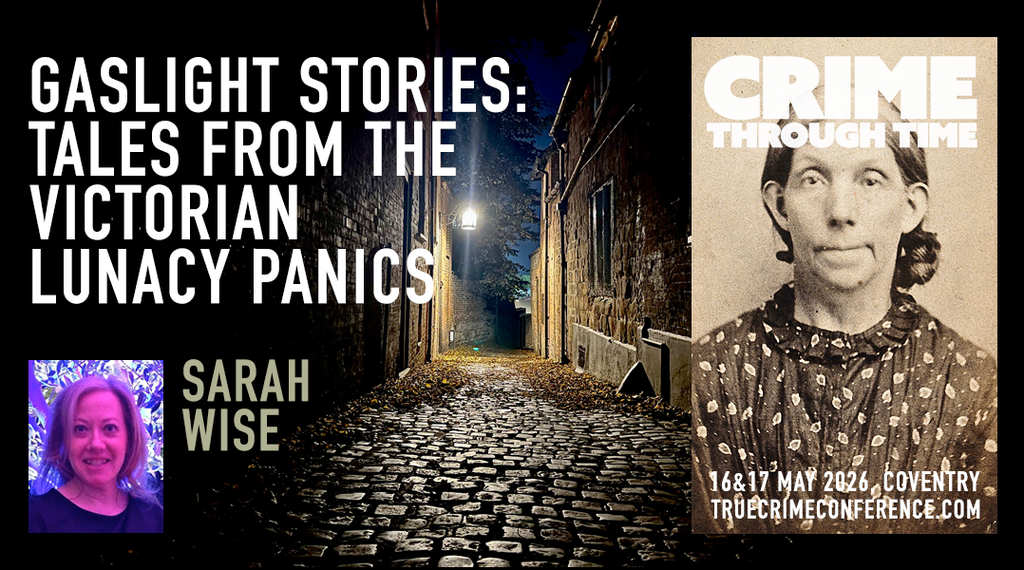GASLIGHT STORIES: Tales from the Victorian Lunacy Panics
WOMEN IN WHITE, ECCENTRIC HEIRS, INCONVENIENT PEOPLE, 'MANIACS' AND 'MONSTERS'
SARAH WISE
The 19th century saw a series of scandals concerning sane individuals being locked away in lunatic asylums – the victims of unscrupulous persons, who wanted to be rid of a ‘difficult’ family member, spouse or friend. But who were the victims of this trade? And to what extent was it carried on? Was a Victorian paterfamilias simply able to ‘put away’ an unwanted wife or disobedient daughter?
In Britain in the 19th century, the understanding of what we call ‘psychopathy’ was in its infancy – even though German psychologists had been working on this aspect of criminality since the 1840s. So commentary and journalism on serious violent crimes still relied on generic terms, such as 'maniac' and 'monster'.
Sarah Wise will unpack this terminology and will also examine a number of disputed lunacy cases – ranging from the 1820s to the 1890s.
Sarah Wise is the author of four books about British social history. She teaches 19th-century social history and literature to undergraduates and adult learners and is visiting professor at the University of California’s London Study Center.
Her third book, Inconvenient People, concerned the scandal of Victorians being placed into ‘lunatic’ asylums on very little evidence.
